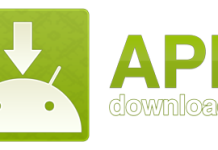Starting a tech blog can be an exciting and rewarding venture, but it also requires the right set of tools to be successful. Whether you’re just beginning or looking to enhance your current setup, these ten must-have tools will help you streamline your workflow, improve your content, and grow your audience.
1. WordPress
WordPress is a powerful and flexible content management system (CMS) that powers a significant portion of the web. It’s perfect for tech bloggers due to its ease of use, extensive plugin library, and customizable themes. With WordPress, you can create a professional-looking blog without any coding knowledge.
2. Google Analytics
Understanding your audience and how they interact with your content is crucial for growth. Google Analytics provides in-depth insights into your website’s traffic, user behavior, and more. By analyzing this data, you can make informed decisions to improve your content and marketing strategies.
3. Grammarly
High-quality, error-free writing is essential for maintaining credibility as a tech blogger. Grammarly is an advanced grammar and spell-check tool that helps you polish your writing by catching errors and suggesting improvements. It’s available as a browser extension, desktop app, and mobile app.
4. Canva
Visual content is a key component of any successful blog. Canva is a user-friendly design tool that allows you to create stunning graphics, infographics, and social media posts. With a wide range of templates and customization options, you can easily enhance your blog’s visual appeal.
5. Yoast SEO
Search engine optimization (SEO) is vital for driving organic traffic to your blog. Yoast SEO is a WordPress plugin that helps you optimize your content for search engines. It provides real-time feedback and suggestions for improving your on-page SEO, including keyword usage, readability, and meta descriptions.
6. Trello
Organizing your content ideas and managing your blogging schedule can be challenging. Trello is a versatile project management tool that allows you to create boards, lists, and cards to keep track of your tasks and deadlines. It’s perfect for planning your editorial calendar and collaborating with team members.
7. Ahrefs
Keyword research and competitive analysis are essential for staying ahead in the blogging game. Ahrefs is a comprehensive SEO tool that provides valuable insights into your competitors’ strategies, backlinks, and keyword rankings. It helps you identify high-performing keywords and opportunities to improve your content.
8. Mailchimp
Building an email list is a powerful way to connect with your audience and promote your content. Mailchimp is an email marketing platform that allows you to create and send newsletters, automate email campaigns, and track performance. It’s an excellent tool for keeping your readers engaged and driving traffic to your blog.
9. Buffer
Social media is a crucial channel for promoting your blog and engaging with your audience. Buffer is a social media management tool that helps you schedule and publish posts across multiple platforms. It also provides analytics to measure your social media performance and optimize your strategy.
10. Evernote
As a tech blogger, you’ll often come across new ideas, articles, and research that you want to save for later. Evernote is a note-taking app that allows you to capture and organize your ideas, web clippings, and documents. With its powerful search capabilities, you can easily find and reference your notes when needed.
By incorporating these ten tools into your workflow, you’ll be well-equipped to create high-quality content, grow your audience, and establish yourself as a successful tech blogger. Happy blogging!










